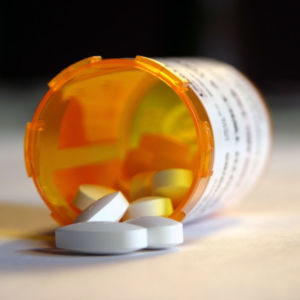All doctors swear the Hippocratic Oath. Often summarized as a command to “first do no harm,” the promise also underscores the need for sympathy throughout a patient’s care. As simple as it sounds, abiding by this commitment when treating patients in pain can be complicated, especially when the resources at hand are limited and imperfect.
Today, thousands of patients across the United States are filling hospital beds, and the coronavirus outbreak is stretching our medical resources thin. Nevertheless, under the surface, the opioid epidemic continues to rage through our communities.
While the two public health crises may seem unrelated, they’re intertwined on a fundamental level. Both are deepened by a lack of adequate access to the medical resources and community action needed to stop their spread.
When coronavirus finally slows in the United States, the uptick in patients returning to have non-essential surgical services that are currently being postponed, could send opioid addition rates climbing once again, unless we take preemptive action.
For many years, patients who needed a wisdom tooth removed or who had a back or hip surgery were sent home with a bottle of powerful narcotic painkillers. Doctors prescribed opioids, which we were assured were safe, in order to keep patients from suffering, but some people became physically dependent on them, and illicit opioids began circulating in our towns.
The medical community has since refined prescribing practices, and I congratulate those who are steering positive change, but we too often lack access to needed alternatives. Advanced studies in post-operative pain from dental surgery, for example, have demonstrated that a combination of non-narcotic drugs can supply comparable pain relief to that of opioids. And a new range of non-opioid pain therapies has been approved by the U.S. Food and Drug Administration for treatment of post-surgical pain.
New therapies can reduce or eliminate the need for opioids, and it is in the nation’s best interest to make them widely available, especially before patients return en masse from quarantine. But to do that, Medicare payment rules must be revised.
The problem is that the Medicare agency does not reimburse sufficiently for non-opioid pain therapies if used after an outpatient procedure. Hospitals and clinics would have to bear the cost. Many simply cannot afford it and, therefore, do not offer non-opioid pain therapies to patients. This means millions older and disabled individuals are still being treated with unnecessary quantities of opioids.
We should not make the unfortunately common mistake of assuming that Medicare patients are not at risk of addiction if they aren’t seeking a “high.” Addiction among the Medicare-age population is, in fact, rising, and the U.S. must use every means possible to reverse this trend on the front end.
Now, we have a chance to do this through meaningful legislation. The bipartisan Non-Opioids Prevent Addiction in the Nation (NOPAIN) Act, H.R. 5172, would modernize Medicare to fully reimburse providers for non-opioid pain therapies used after outpatient surgery. This would enable hospitals and surgical clinics to offer these safer pain treatments and reduce the volume of opioid painkillers sent into American households, where they are all too often misused or stolen to sell on the streets.
By simply investing a bit more in non-addiction post-operative pain therapies, the U.S. can increase quality of care, demonstrate compassion for patients suffering pain, and contain long-term spending on addiction treatment and other impacts of the opioid epidemic.
Full Medicare coverage of non-opioid pain therapies after surgery is the wisest course of action, and it is the only way to prevent our current health crisis from worsening others down the line.
Congress should pass the NOPAIN Act as part of any COVID-19 upcoming relief package as soon as possible so that patients have access to non-opioid therapies sooner, rather than later.

